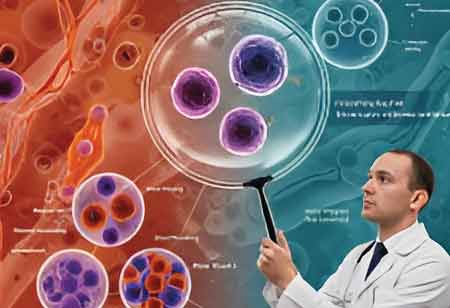Thank you for Subscribing to Healthcare Business Review Weekly Brief
Redefining Beauty: The Evolving Motivations for Undergoing Cosmetic Surgery

Be first to read the latest tech news, Industry Leader's Insights, and CIO interviews of medium and large enterprises exclusively from Healthcare Business Review
Thank you for Subscribing to Healthcare Business Review Weekly Brief

By
Healthcare Business Review | Wednesday, June 26, 2024
Stay ahead of the industry with exclusive feature stories on the top companies, expert insights and the latest news delivered straight to your inbox. Subscribe today.
Various personal, psychological, and societal factors influence cosmetic surgery motivations.
FREMONT, CA: Once reserved for the affluent or celebrities, cosmetic surgery is now a mainstream option for individuals seeking aesthetic enhancement. Motivations for cosmetic surgery often stem from personal desires, psychological factors, and societal influences, shaping individuals' decisions to alter their physical appearance.
Enhancing Self-Confidence and Body Image
The aim to boost self-esteem and improve body image is one of the main drivers of cosmetic surgery. Many believe some physical characteristics detract from their beauty or sense of self. Surgery such as liposuction, breast augmentation, or rhinoplasty (reshaping of the nose) provides an opportunity to correct perceived defects or imbalances, boosting confidence and a more positive self-image.
Correcting Physical Imperfections or Defects
Cosmetic surgery also serves medical purposes beyond aesthetic enhancement. Procedures such as scar revision, cleft lip repair, or reconstructive surgery following accidents or medical conditions aim to correct physical imperfections or deformities. For individuals affected by congenital abnormalities or traumatic injuries, cosmetic surgery can restore normal appearance and functionality, significantly improving quality of life and psychological wellbeing.
Achieving Cultural or Societal Ideals of Beauty
Cultural and societal norms often influence individuals' perceptions of beauty and attractiveness. Certain physical traits or proportions in many societies are idealized and associated with success, desirability, or social acceptance. Cosmetic procedures offer a means to align one's appearance with these ideals, whether it involves achieving a more youthful appearance through facelifts and Botox injections or attaining a more symmetrical and proportionate body contour through procedures like liposuction or abdominoplasty (tummy tuck).



